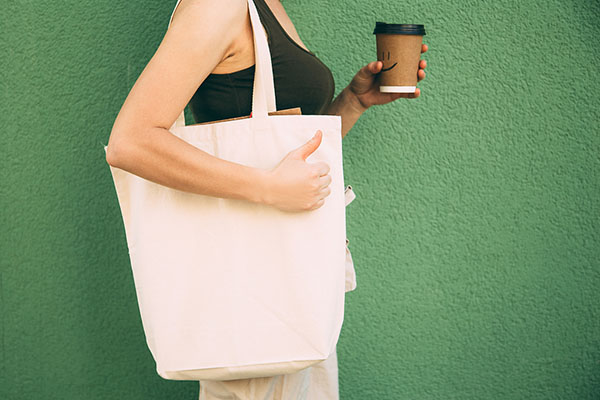

SHENZHEN — A new trend has popped up in China with many young people abandoning brand names to create makeshift handbags out of things like reusable grocery bags and other materials.
One example is the "Shenzhen bag", which includes canvas bags, paper bags, milk tea packages and the like, that people carry around in the city in Guangdong province.
"I often take cloth and paper bags to work because I can put all kinds of things in them. They are also well-designed and good quality, and they are liked by my friends and colleagues too," says Wang Xinyue, a resident of Shenzhen.
Makeshift handbags like the "Shenzhen bag" are also quite common among young people in big cities like Beijing, Shanghai, and Guangzhou, provincial capital of Guangdong. People find the bags practical, wearable and fashionable, and they can be carried on the shoulder or the back. Some bags even have a thermal insulation coating, and are suitable for both men and women and different age groups.
This emerging trend reveals a new attitude to consumption as young people in China begin to pursue a simple and shared life, with consumers no longer blindly pursuing brand names as a status symbol, but advocating a simple and low-carbon lifestyle.
In addition to the handbags, and regardless of their monthly incomes, many young people are living more casually, in line with a "good enough mentality". Loose T-shirts, Crocs, and canvas bags are basically standard mode. These simple, pragmatic products have become trendsetters.
"Consumers today are becoming more mature and rational. They are pursuing smarter consumption through rational consideration and calculation to find the cheapest, most practical, cost-effective way of shopping," says Wang Ning, a sociology professor at Nanjing's Southeast University.
Economists believe that China's Generation Z no longer blindly pursues brands and luxury goods or buys things for the sake of name and status. Instead, they pay more attention to their actual needs, quality, and experience of buying, and prefer sharing and secondhand purchases. They also advocate environmental protection and sustainable consumption.
A report released by database query platform TianYanCha.com confirms that rational and pragmatic decisions such as "what I buy is what I really need" have become mainstream.
Price-conscious Chinese consumers have also begun to place a greater emphasis on their inner selves. Driven by rational consumption, many young people no longer scrimp and save to buy a brand-name bag, and the money they save is used on self-improvement.
The new handbag trend has also created business opportunities. Reusing packaging used for food brands as handbags results in mobile advertising for the associated brands, and the phenomenon of the "Shenzhen Bag" has also benefited paper bag manufacturers.